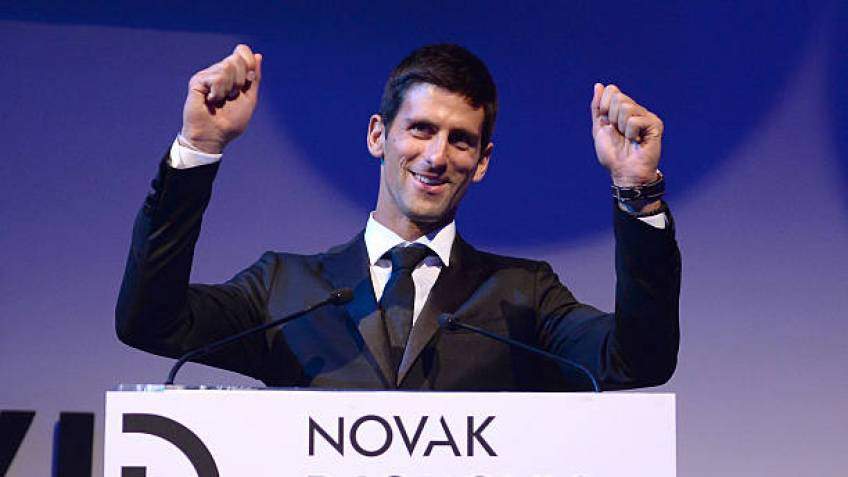
HNWs face endless choices about where to direct their philanthropy. Hannah Solel speaks to Alberto Lidji, global CEO of the Novak Djokovic Foundation, about how to take the first steps
If you consider the sheer number of foundations that exist worldwide (an estimated 260,000) and the size of assets they garner (more than $1.5 trillion), you might be forgiven for thinking that every HNW is involved in philanthropy in some capacity. But despite these vast figures, revealed by a recent UBS-funded report, there is often a hesitancy about starting out in the world of philanthropy. According to Alberto Lidji, the global CEO of the Novak Djokovic Foundation, it is not uncommon to encounter HNWs who want to get involved in philanthropy but are yet to take the plunge.
‘If someone sees themselves in that predicament, I say to that person: speak to your financial adviser, your private bank, your philanthropy adviser or even to your peers to start that conversation,’ says Lidji. The philanthropy sector might be large, diverse and therefore slightly daunting to someone who has never been involved before, but Lidji encourages HNWs not to be tentative. ‘Don’t let that lack of knowledge be a hurdle to starting,’ he says.
Lidji leads the Novak Djokovic Foundation, which focuses on improving pre-school education and early childhood development in Serbia. His approach to philanthropy is straightforward. ‘It is very much like investing,’ he explains. ‘You can start small, get to know the proposition, calibrate what works and doesn’t work for you and gradually build up.’
He has 17 years’ experience of the philanthropy sector, ranging from the London School of Economics’ fundraising team to the Duke of Edinburgh’s International Award Foundation and working as head of development at Trinity College, Cambridge. As such, Lidji is more than well placed to advise on what HNWs should do before starting out in philanthropy.
First, it is vital that you ‘understand your own situation’. This involves not only being practical about how much money you want to give to a charity or foundation, but also the amount of time you can commit and whether you have anything else to offer. Tech entrepreneurs in particular should consider how they can lend their skills, says Lidji.
Next, he stresses the importance of ‘assessing all materials with a critical eye’ in order to gain as much insight as possible into the organisation’s activities. This means getting to grips with the finances and the overall strategy – as you would before embarking on a for-profit investment – but also establishing a connection with the people. Who are the senior members in the organisation and do you feel confident that their expertise matches their commitment?
It is also crucial to find out how the organisation measures success, especially to determine whether you agree with their approach. ‘It’s extremely important to understand exactly what you want to achieve through your support, whether that be immediate impact, benefiting a cause close to your heart, assisting long term change or perhaps all three,’ adds Lidji. Understandably, this ‘differs between every individual’ he notes.
Ultimately, the old saying ‘think before you act’ seems to ring as true for philanthropic endeavours as for other decisions in life and business. Djokovic himself thought hard before co-founding his foundation in 2007 with his wife Jelena. His foundation focuses on early childhood education and development, primarily in Serbia, where only one in two children have access to pre-school education.
Djokovic may be a 12-times Grand Slam champion with three Wimbledon titles, but this is not just a ‘celebrity foundation’ says Lidji, who explains that the Djokovic’s are actively involved in decision-making and championing new projects. So far, the foundation has built or repurposed 37 schools, provided improved training to 1,300 teachers and helped 683 families through family support initiatives in Serbia and other developing countries.
Hannah Solel is a researcher and writer at Spear’s
Related:
Global philanthropy tips $1.5 trillion
Inside the charity shop for the 1 per cent
Why millennials will be the biggest philanthropic donors in history








